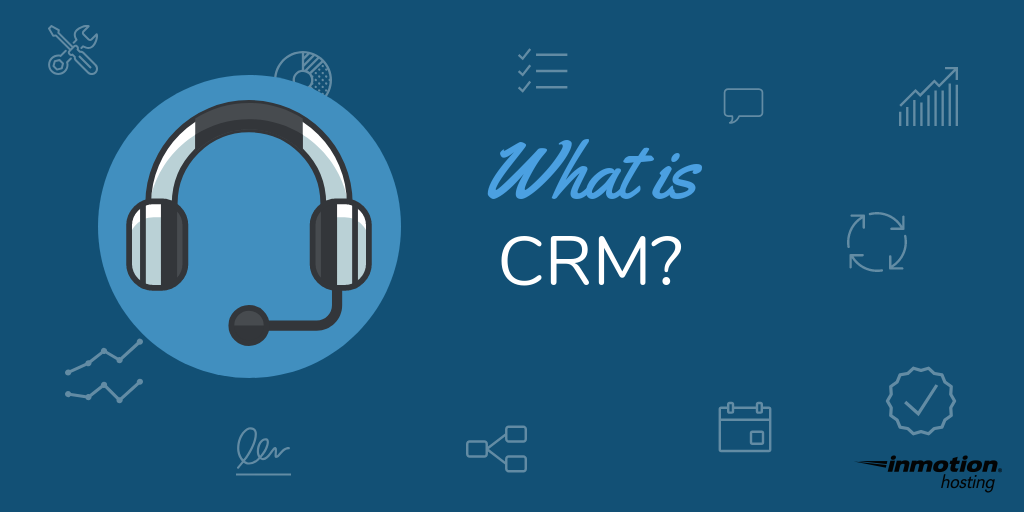
Customer relationship management (CRM) gives you an interface for connecting with customers (old and new) to properly nurture a mutually beneficial relationship.
What Does a CRM System Do?
First and foremost, contacts. CRM is all about managing a list of customer contacts. These contacts may be names, email addresses, phone numbers, and more. The more information you have about your customers the better. Would you like to reach out to a customer on their birthday and send a nice message? CRM helps you do that.
Keeping track of this kind of information in one central location gives your team access to the same data. That way, if one of your sales people leaves the company, their list of contacts and information is available to the salesperson who will replace them.

Tracking Multiple Types of Data
Beyond contacts, CRM helps keep track of other important data. For example, many CRM applications will help you keep track of the buyer’s journey. If you are talking to a customer who has just entered your funnel, the CRM will be able to tell you that, so you can provide the proper procedures. You wouldn’t treat someone who is merely aware of you as someone who has been a customer for ten or more years.
Buyer Phases and Deals
Throughout a sales relationship there will always be different deals happening at different times. CRM lets you keep a record various deals and what “phase” a deal is going through.
For example, every type of sale has different stages from a pitch, to an agreement, to a decision, and eventually a sale that ends with a voluntary transaction. A CRM is designed to fit different stages and phases you can customize for your product or sales style.
Assigning Contacts to Agents
If you’ve made a significant purchase in the past, like a furniture set or expensive electronic gear, you may have recalled a sales purpose sending a follow-up email or phone call to let you know they’re available for further assistance. This is likely the salesperson who was assigned to you.
If that salesperson ever leaves that company, your contact will likely be assigned to a different member of the team. If you ignore the calls and never buy anything from this company again, they will probably assume the sales relationship is over and stop reaching out to you.
Most CRM tools allow you to assign contacts to different members of your team. This can help ensure accountability along the course of the buying relationship. If the CRM you’ve selected doesn’t have an assignment feature, you may want to look at other options. However, if you are the sole member of your team, then maybe this feature is not necessary for you. In the latter case, choose whichever tool works best.
How to Try Different CRM Apps
A feature-rich CRM can vary greatly in price and complexity. The best way to try out different CRM options is to first make a list of the features you think you’ll need. Then, do a free trial of a variety of CRM applications. Take notes about what you liked and didn’t like in each choice. Your notes will help you make the best decision when it comes time to buy.
There are also free CRM options on the market, if a purchase is not in your budget at this time.
Is CRM Necessary For Business?
CRM, like any business tool, is not a requirement to have good relationships with customers, but if your sales staff grows, it can help you manage the customer load with precision. You can accomplish many of the benefits of CRM by simply having a good contact list that you keep up to date. Higher profile CRM applications become helpful when your client list grows and other people are helping you keep in contact with those clients or welcoming new clients.